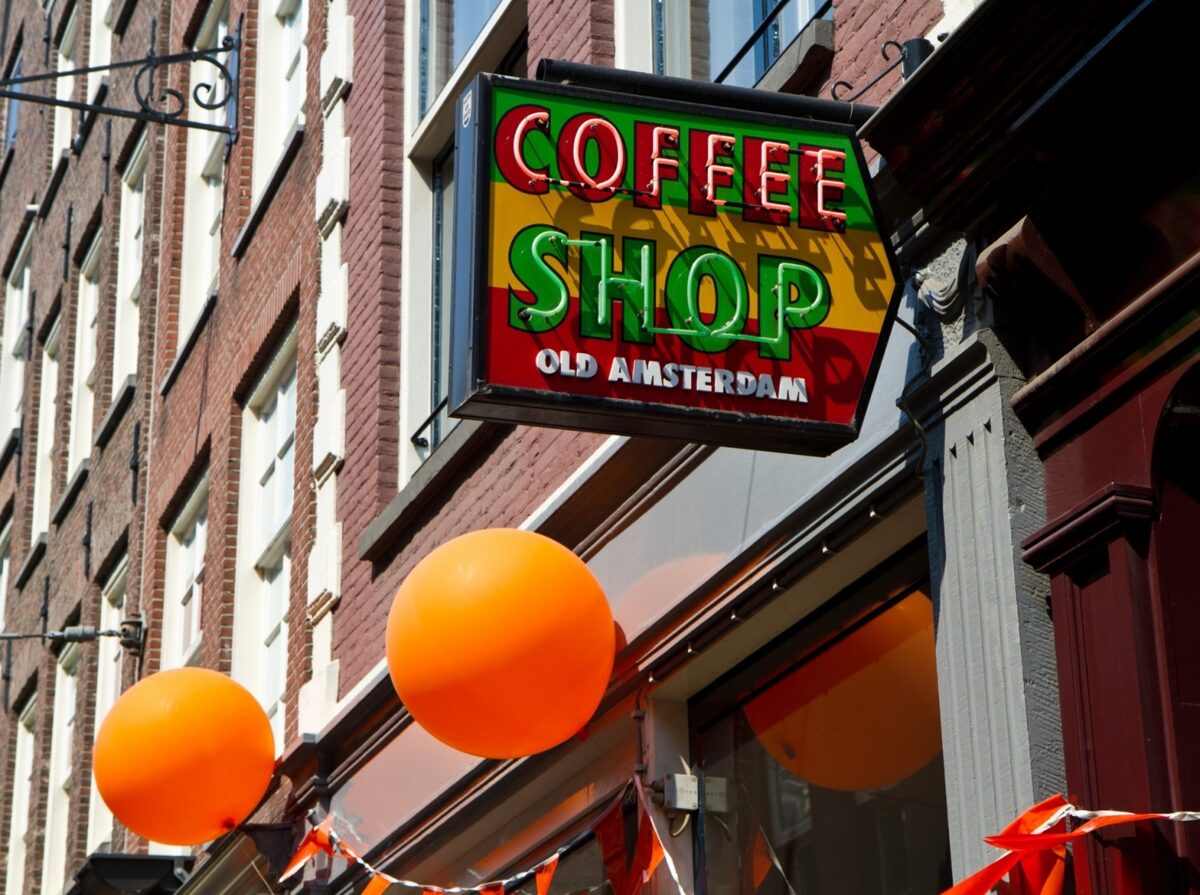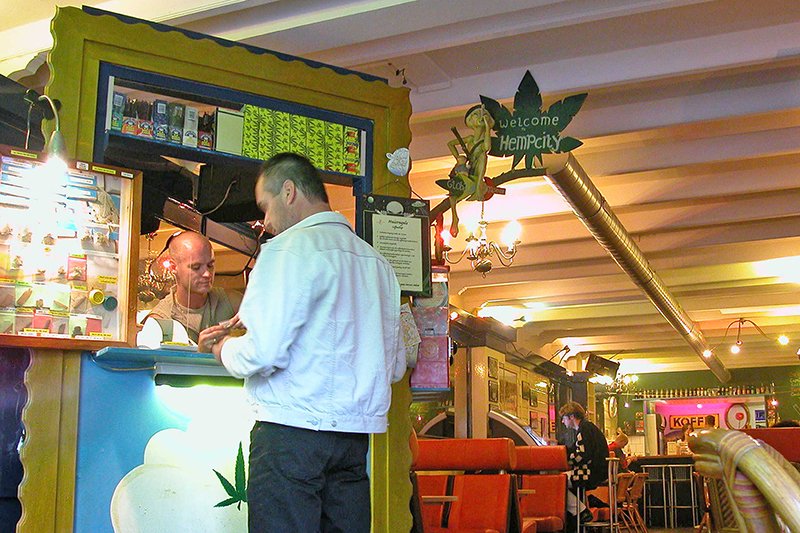Why drugs are legal in the Netherlands
Everyone knows that in Amsterdam you can go into a coffee shop and purchase soft drugs (weed, magic truffles, salvia, and peyote cactus). Additionally, a menu listing the medications of the day and maybe a special will be delivered to you. Everything is available; the cost of four joints is equivalent to that of twenty cigarettes. You won't be arrested since it is lawful. What sort of laws are they then? Are the true risks of drug misuse not of concern to the Dutch? The development of drug laws in Amsterdam followed a similar path to that of legislation in other nations throughout the previous century, although the Netherlands' approaches were unique from those used elsewhere.
General policy
To possess, sell, or manufacture narcotics is against the law in the Netherlands. The Netherlands does, however, allow the selling of soft drugs at "coffee shops." A coffee shop is a place where alcohol is not sold or consumed but where cannabis is supplied under very stringent regulations.
People who possess or use modest amounts of soft substances are not subject to prosecution by the Dutch Public Prosecution Service. All other types of soft or hard drug possession, sale, or manufacturing are prosecuted.
Drug usage leads to crime and annoyance everywhere, including in the Netherlands. In response, the government is enforcing stricter regulations on coffee shops, destroying cannabis cultivation facilities, and reducing the manufacturing and trafficking of dangerous narcotics.

The Opium Act
The Opium Act
outlines the guidelines for narcotics. This Act has two lists
attached to it. These describe how soft and harsh drugs differ from
one another. The Netherlands prohibits the use, possession, and
manufacturing of narcotics, although it permits the sale of soft
drugs in coffee shops under very rigorous regulations. In a coffee
shop, marijuana is available for purchase, but no alcoholic beverages
are served or consumed.
Tolerance guidelines for soft substances in coffee shops
Hard
drugs like cocaine and ecstasy are more harmful to health than soft
drugs like marijuana and hash. But in the Netherlands, soft drugs are
likewise prohibited. This implies that anybody caught trafficking,
manufacturing, or possessing these narcotics might face legal
consequences.
However, when it comes to the selling of soft
drugs at coffee shops, the Netherlands follows a policy of tolerance.
This indicates that although the selling of soft drugs in coffee
shops is illegal, the Public Prosecution Service does not pursue
legal action against coffee shops for this crime.
Additionally,
the Public Prosecution Service does not bring charges against members
of the public who possess tiny amounts of soft substances. These
amounts are specified:
no more than 5 grams of cannabis (marijuana or hash);
no more than 5 cannabis plants.
Arguments
for the tolerance policy
While hard drug sales are vigorously
suppressed in the Netherlands, the selling of soft drugs at coffee
shops is tolerated. Cannabis users do not need to get their soft
drugs from illegal vendors who may readily introduce them to
dangerous narcotics.
Can coffee shops be a problem?
Drug addicts and coffee shops may both be quite bothersome. Near coffee shops, crime and other problems are more prevalent than elsewhere. The Dutch government has tightened regulations for cannabis sales in coffee shops as a result. A place where marijuana is sold but no alcoholic beverages are consumed is a coffee shop.
Coffee
establishment in Amsterdam with a history of drug use among the
Dutch
The notion that each individual has the right to make
decisions regarding their health informs Dutch drug policy. The
Dutch see this law as essential, recognizing, for instance, that
terminally ill people may engage in controlled suicide (also known as
euthanasia). Although this is also conceivable in select locations in
the US, Belgium, Luxembourg, and Switzerland. The belief that hiding
socially harmful phenomena does not make them go away—rather, it
makes them worse—is another principle that informs Dutch drug
regulations. When socially harmful phenomena are hidden, they are harder to influence and regulate.
Applying
these concepts to their drug laws, the Dutch work to the greatest
extent feasible to decriminalize drug use, making it a matter of the
person rather than the enforcement machinery. Drug production, trade,
and stockpiling are still crimes, just as in any other nation.
The
use of drugs is seen as a health issue by the Dutch, much like the
use of alcohol and cigarettes, and is not that unlike issues with obesity, drunkenness, and tobacco smoking. The
prohibition of alcohol in the US from 1919 to 1933 resulted in more
bad consequences, such as an increase in crime, than it did favorable
social developments, and it had to be lifted.
According
to their impact on human health, the Dutch have separated drugs into
two categories: soft drugs and hard drugs. As in every other nation,
using hard narcotics like cocaine, LSD, morphine, and heroin is
prohibited in the Netherlands.
Soft drugs like cannabis are
lawful as long as they are used for "personal use,"
including pot, hashish, and hash oil. Hallucinogenic mushrooms,
sometimes known as magic mushrooms or paddos (from the Dutch word
paddestoel, meaning mushroom), are also legal. As a result, selling
cannabis is largely accepted as long as it is done in a restricted,
regulated manner (in public, for example), even though it is
technically against the law under the still-in-force Opium Act
(dating from 1919, cannabis was included as a substance in 1950).

Beginning
November 1, 2008, the selling of the majority of hallucinogenic
mushrooms (often referred to as magic mushrooms or paddos) is
prohibited. More than 200 distinct types of mushrooms were added to
the prohibited list and are now viewed as just as hazardous as
cocaine or heroine under the Opiumwet, or Opium Act, of the
Netherlands. The paddos, which weren't previously truly thought of as
pharmaceuticals, were formerly offered by so-called smart shops
alongside well-known herbal remedies like Ginkgo Biloba, Guarana,
Cola, certain herbs, food additives, and vitamins. About a
hundred cases—mostly involving foreign tourists—were reported
annually in which the need for medical attention was attributed to
the eating of paddos in Amsterdam alone. Three of these situations
tragically resulted in major accidents, one of which tragically
resulted in the death of a 17-year-old French girl. Before the ban
was put into effect, hundreds of people protested in Amsterdam. Both
hard narcotics and hallucinogenic mushrooms are now illegal in the
Netherlands.
Even though several varieties of
mushrooms, most notably the weaker "truffles," were omitted
from the list of prohibited items, shrewd retailers nonetheless
occasionally offer them. Additionally, some paddo spores are
occasionally for sale.
The Dutch do not consider their liberal approach to moderate soft drug usage as some sort of magical cure. Through educational initiatives, careful observation of drug abuse scenes, and health initiatives including free ecstasy pill testing, a free syringe exchange program, and free methadone (a substitute for heroin) supply program for heroin addicts, they work to prevent drug misuse. Hundreds of these initiatives are currently in operation every day in 60 Dutch cities, having a significant impact on daily life there. Dutch authorities fight drug trafficking to eradicate harmful illicit narcotics.
